Studying a PhD whilst at CERN, with Joshua Dawes.
Life after study Student experience 5th November 2019
Joshua Dawes is 25 years old, from the UK and a final-year PhD student in Computer Science.
Although Joshua is studying his PhD with The University of Manchester, for the entire period of the
programme he’s actually based at CERN in Geneva, Switzerland on CERN’s Doctoral Student
programme.
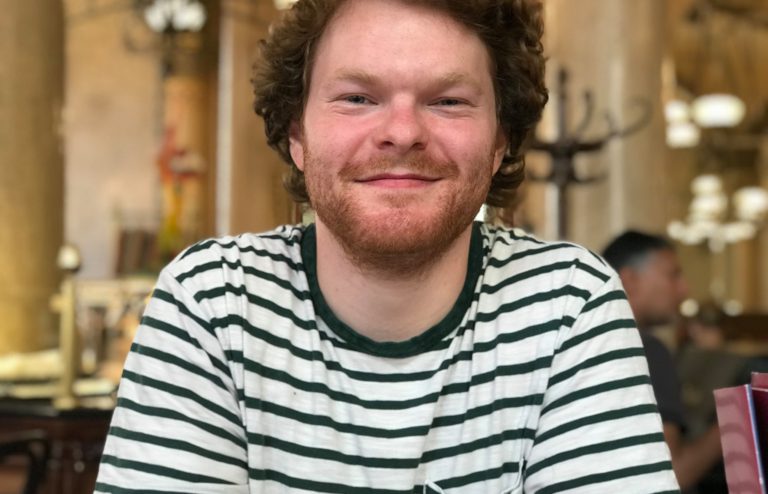
Here we find out more about Joshua’s research and why he came to choose to study Computer Science at Manchester…
Hi Joshua, why did you want to study your PhD with The University of Manchester?
I actually did my undergraduate degree in Computer Science and Maths here at The University of Manchester too. Part of my degree was a placement year and I did mine at CERN at the CMS Experiment. While I was there, my interest in doing a PhD after my bachelors reached its
peak and my team at CERN helped me to decide on a topic. At the same time, my future
supervisor at Manchester was looking for PhD students and he had the perfect balance of
interests for the idea we had at CERN…after a short skype call, we had a project proposal
and an agreed supervision team. I got *ridiculously* lucky and ended up with an unconventional but ultimately ideal supervision team!
Can you tell us a little bit about your research?
When I explain my research to anyone who asks, I start by saying that it’s aimed at automating, as much as possible, the analysis of
the behaviour of computer programs. At the moment, the focus is on Python programs.
What actually happens to reach this goal consists of developing a lot of theory and then,
based on the theory, implementing tools for developers to use. These tools let software
engineers:
1) describe how their system should behave;
2) check whether it’s actually
behaving like that when the program runs; and
3) find the places where there might have been a deviation from expected behaviour, and then try to determine why.
The tools are publicly available – http://cern.ch/vypr and the research is described in
significantly more detail in publications listed at http://cern.ch/jdawes.
What do you enjoy most about studying/researching?
I was lucky to be able to get a supervisor for my PhD who was interested in the applied
aspect of what can be an extremely theoretical field. Of course there is a large
theoretical aspect of my research, but there’s an over-arcing theme of “research from
demand”. In other words, when we develop theory we steer it by what we know is
needed in our practical setting. This generally strengthens results and adds another layer
to the work we’re doing: of course the main reason for doing everything is to get the PhD
at the end, but you’re also working on a kind of product.
From this “product” view comes a whole other area of things you have to learn about: how to market your research. Being
good at this is really hard. Working out how to hit the mark with an audience who could
benefit from your work (but whose interests are not in the research needed) takes
practice! This is one of the things I love about how my PhD has ended up.
How do you see your time at The University of Manchester helping with your career
plans?
Technically my time at Manchester is also my time at CERN, and starting my career in an
applied environment, which is where I want to stay, has been perfect for me. CERN has
the perfect mix of industry and academia; I can do research (engineering and theory) and
publish, and then there are places to actually apply what you’ve worked on.
Has your time studying at The University of Manchester & CERN caused you to rethink or alter
your career plans?
My PhD has completely changed my career plans. When I first started, I was ready to be a
theorist. But now I’ve spent a lot of time in this world that’s a mixture of theory and
practice, I want to stay. I enjoy working on theory, but ultimately what I really get
excited about is seeing things being applied outside what I’m familiar with.
What would you say to people considering coming to Manchester to study?
I can’t say anything about the environment for PhD students who are permanently here,
but I support doing a split-site PhD* (working with industry, as long as there’s a research
culture in the part of industry you work with).
Doing a split-site PhD can be tricky. There are different perspectives involved and,
ultimately, the priority is for you to get your PhD, so you have to be careful to balance the
things you’re working on. For example, there have been moments when I’ve been aware
that what I was working on was no longer important for my PhD. These are the moments
that shouldn’t become too frequent.
And outside university… what do you get up to in your spare time?
I’m lucky enough to live in a beautiful part of the world, so I try to explore as much as I
can. This includes little day trips, snowboarding in the Alps, longer breaks with my other
half or travelling for work.
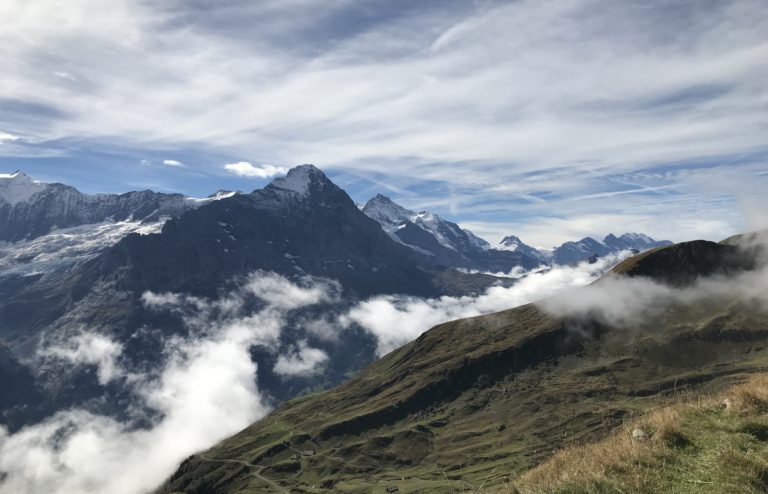
I make sure to stay active by running and doing yoga (if you haven’t, you should definitely
try it – it’s great). I can’t emphasise enough the importance of being active (okay
sometimes I have periods, especially when I travel for work, where the active lifestyle
takes a break).
Finally, since I live in the French-speaking region of Switzerland, I really enjoy using my
spare time to practice French. Whether it’s talking to people or watching movies…
interacting in your second language is a unique experience.
Can you tell us the best way for a student to do a similar programme to you and what opportunities there are available at CERN?
Firstly, CERN has a few student programmes for students at different stages in their studies. My
first contract with CERN was a Technical Studentship for 13 months. These contracts last
for 6-14 months and give students a good feel for life at CERN and in the surrounding
region.
Another amazing opportunity at CERN is the Summer Student programme. This involves
students coming from all over the world for up to 3 months to see what exactly goes on
here. At the time of writing this, I’ve supervised three students on this programme and I
can’t emphasise enough how much people can take from it. I like to put it at least a bit
down to my supervision, but the summer spent at CERN has enough impact that 2 out of
my 3 past students have since applied to come back with longer-term contracts.
Finally, I want to promote PhDs in general. They are hard, but you gain experience in so
many different areas and you become confident in loads of situations. I think the main
purpose of your PhD is to teach you how to do research. For example, you learn to estimate how promising a given direction is; how to explain your research; and
how to operate in an environment where your research is just one moving part out of
many.
Besides this, I think you learn so much about the world. You travel to communicate your
research (at the time of writing this, I’ve had the privilege of giving talks in 4 countries
and will fly tomorrow to give a talk in a fifth country), you work with people from
different backgrounds (professional and cultural) and you see how research fits into the
wider world (not just a corner of academia to which your PhD contributes).
Joshua
*If you are interested in studying a PhD or a split-site PhD/EngD then please visit our website for more details:
https://www.cs.manchester.ac.uk/study/postgraduate-research/
If you want to find out a little bit more about Joshua, why not listen to an extended interview with him on our CS@Manchester podcast.


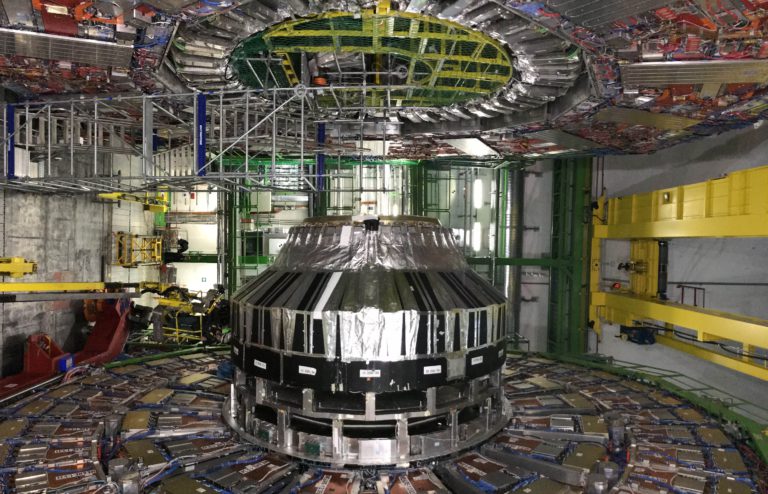
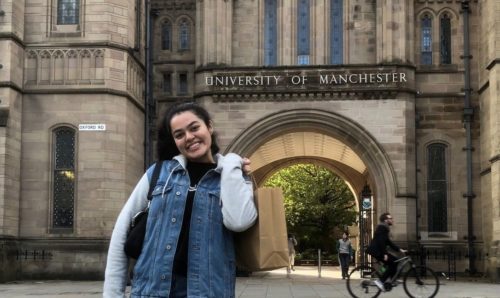
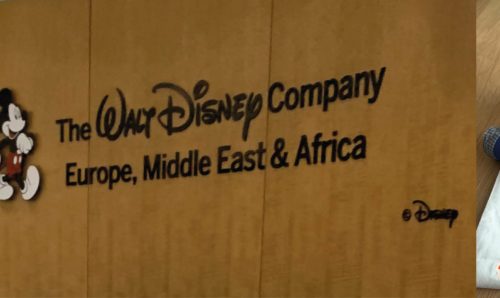
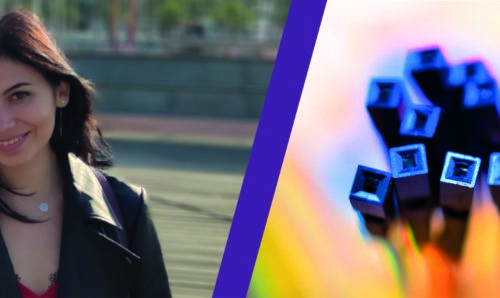
JORDAN LLOYD says
Hi Duncan,
I have previously been to CERN on a school trip an dim interested in applying to the summer programme. I’m a second year studying computer science and maths. Is there any previous students who has done this or tips I can receive.
Thanks,
Jordan Lloyd